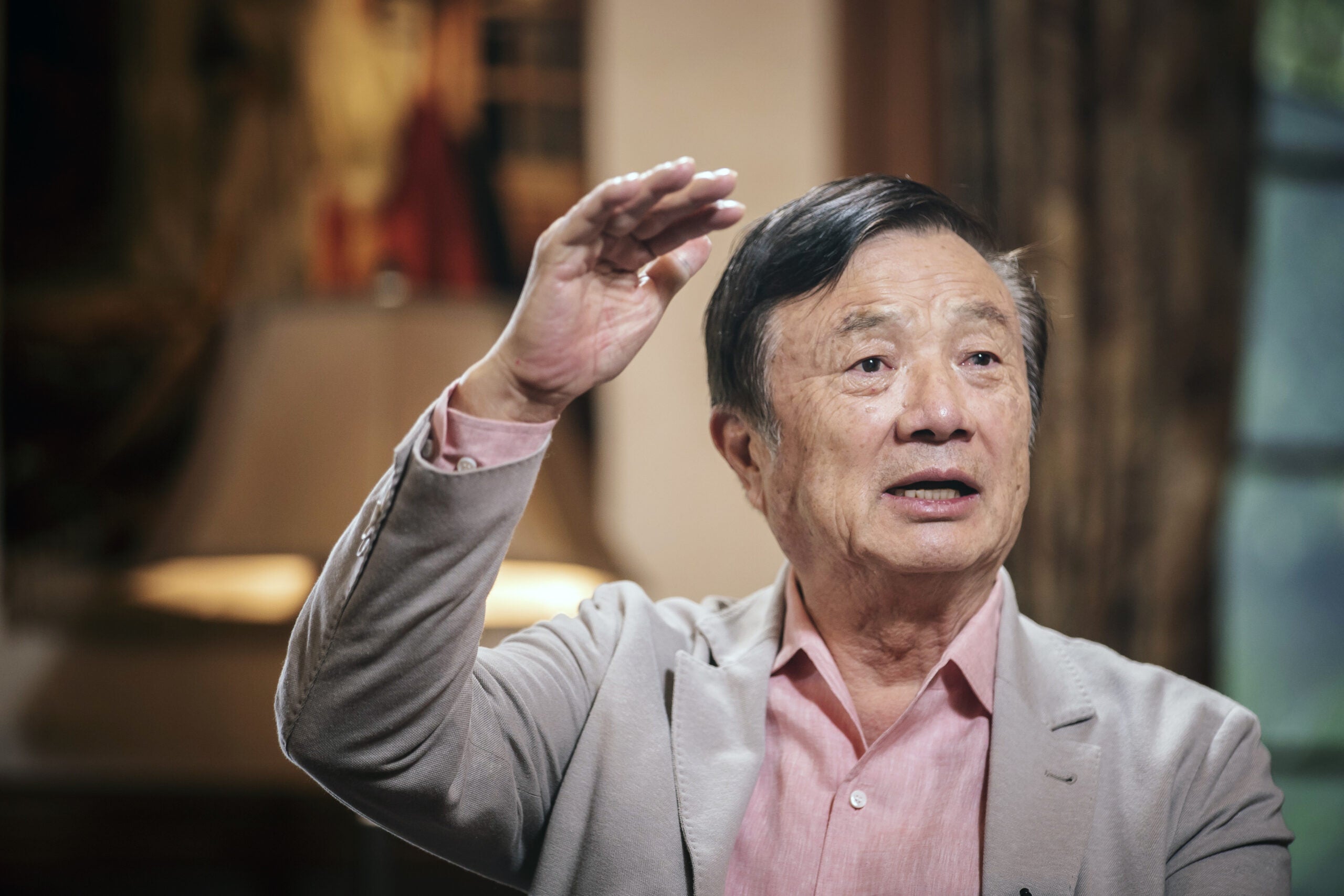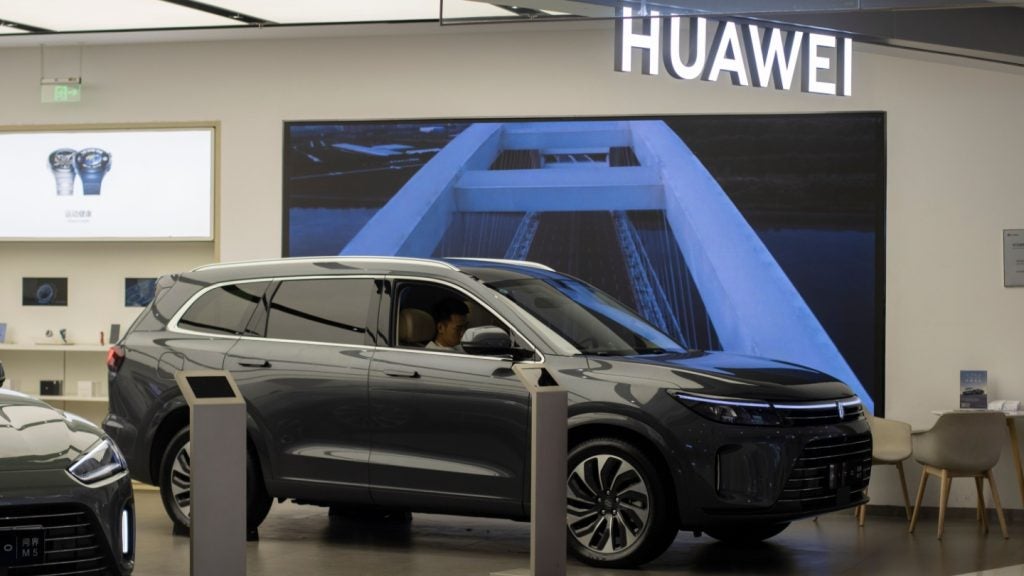
The founder and CEO of Chinese tech giant Huawei, Ren Zhengfei, has announced plans to recruit more international talent by offering higher salaries than the market standard. He also emphasised the company’s ambitions to become a world leader in 6G technology.
At an internal Huawei meeting on August 2, the text of which was recently made public, Ren doubled down on the company’s plan to set global standards in the tech industry, despite persistent US sanctions.
At the meeting, Ren answered questions from researchers who work at the company’s various R&D labs. Despite suffering the largest-ever revenue decline in the first half of 2021, Ren assured that “there has been no chaos within the company. Instead, the company is now more united than ever and has even attracted more talent.”
In his speech – which was inspired by an ancient Chinese poem evoking the sentiment that each era brings forward new genius – Ren emphasised the importance of recruiting global talent to stay ahead of the curve.
“We must open our minds, emancipate our minds and dare to attract the best talents in the world,” he said, adding that the company was at a critical point of strategic survival and development, hinting at the disruption caused by US trade sanctions.
“To be in line with international standards and to attract the best talent, salary standards must be higher than in each individual country,” Ren said.
How well do you really know your competitors?
Access the most comprehensive Company Profiles on the market, powered by GlobalData. Save hours of research. Gain competitive edge.

Thank you!
Your download email will arrive shortly
Not ready to buy yet? Download a free sample
We are confident about the unique quality of our Company Profiles. However, we want you to make the most beneficial decision for your business, so we offer a free sample that you can download by submitting the below form
By GlobalDataThe Shenzhen-based company conducted a significant recruitment push recently, in which it hired experts and PhD candidates in areas such as “artificial intelligence algorithms, autonomous vehicle engineering, software and computing infrastructure, chip development and quantum computing.”
GlobalData’s job analytics dashboard showed a spike in new hires by Huawei in July. Positions were filled primarily in Europe and Asia, with Turkey, Hungary, Japan and Finland topping the list.
By the end of 2020, the company had 197,000 employees worldwide, according to GlobalData’s Intelligence Center.
In addition to attracting more global talent, Ren also doubled down on the company’s ambitions to “break limits in the sky” and set global standards for emerging 6G technology.
“We are researching 6G to take precautions and to seize the ground on 6G patents. We won’t wait until 6G is already in use, as waiting would impose constraints on us due to not having the right patents,” Ren emphasised.
As with 5G, the race to 6G has become a competition between the world’s major economies. China has in the past said it would prioritise 6G as one of its key research areas. Equally, the US and Japan have poured money into the development of 6G technology in recent years.
Despite still being in its infancy, 6G technology promises to open doors to even more futuristic applications. It is expected to exhibit an even higher speed than its predecessors and is likely to support applications beyond current mobile use scenarios, such as virtual and augmented reality, ubiquitous instant communications and the Internet of Things.
In his speech, Ren also mentioned the impact of US trade sanctions on Huawei, which began in 2019. Amid criticism for alleged links to the Chinese government and assisting the state in foreign espionage, the Trump administration placed Huawei on the so-called Entity List.
As a result, Huawei was banned from using US technology, severely impacting its bottom line in 2020. The company saw its revenue in the US drop 24.5% to $60.24bn, while in Europe, returns shrank by 12.2% to $27.5bn.
Adding insult to injury, the US was also able to cut off Huawei’s supplies from the world’s largest semiconductor maker, Taiwan Semiconductor Manufacturing Company (TSMC), last August, which hit Huawei’s Achilles heel.
Ren acknowledged the effect of Washington’s sanctions on the company’s chip supply, saying that Huawei is no longer “seeking to use the best components to make the best products”. Instead, the company will use “appropriate” components to make high-quality products to improve the company’s profitability.
Nevertheless, Ren doubled down on Huawei’s pledge to keep its chip unit, HiSilicon Technologies, alive. Earlier this year, director and senior vice president, Catherine Chen, said that the company had no plans to restructure the chip design unit, despite it not being profitable.
Ren reiterated this sentiment saying that “we will allow HiSilicon to continue climbing the Himalayas, but most of our employees will grow potatoes and graze sheep and cattle at the foot of the mountain to provide a steady flow of food to those who are climbing the mountain.”
Following the damage to Huawei’s core business of networking equipment, the company has been looking to other sectors to boost profitability. It has rapidly expanded efforts in various industries in recent years, including cloud computing and autonomous vehicles.
Meanwhile in Canada
Ren’s daughter Meng Wanzhou, who is the chief financial officer at Huawei, has also been at the centre of media attention due to the ongoing extradition hearings taking place in Vancouver, Canada.
Informally known in China as the Princess of Huawei, Meng was arrested in Canada at the request of the USA two years ago for alleged bank fraud and evasion of economic sanctions against Iran. The case has complicated US, Canadian and China relations, as the US wants Meng extradited to New York for trial.
In the latest round of hearings, Meng’s team presented arguments related to alleged abuses of process that they contend should result in a suspension of the extradition proceedings. Meng’s lawyers argued that her case was politically motivated and that she was used as a pawn in former US President Donald Trump’s trade war with China.
The judge set October 21 as the date for the next court appearance, at which point she is expected to announce the date of her ruling.
If the judge rules in Meng’s favour, the proceedings will be over and Meng could be released, although the Crown, which is arguing on behalf of the plaintiff, could choose to appeal. If the judge rules against Meng, the extradition decision will move to Canada’s justice minister for final approval.





